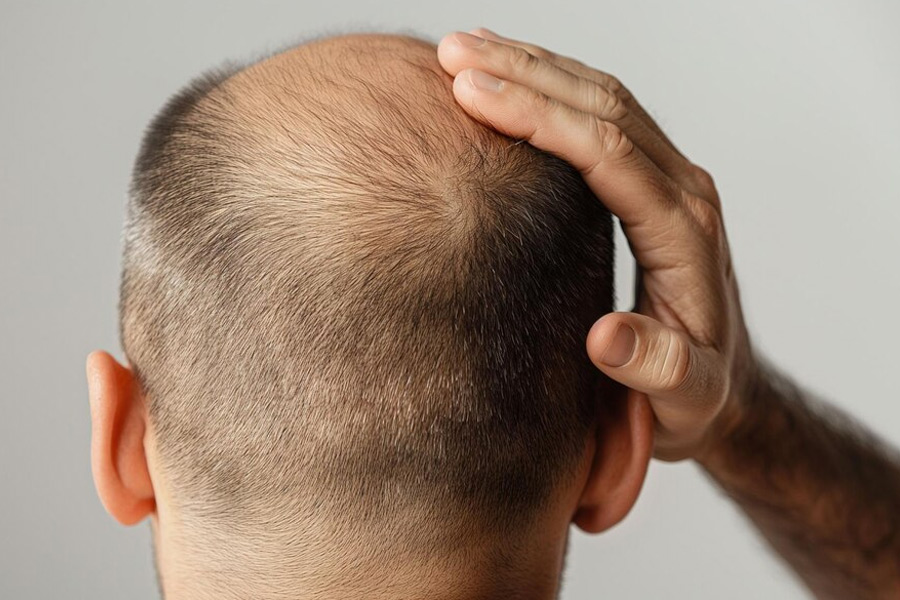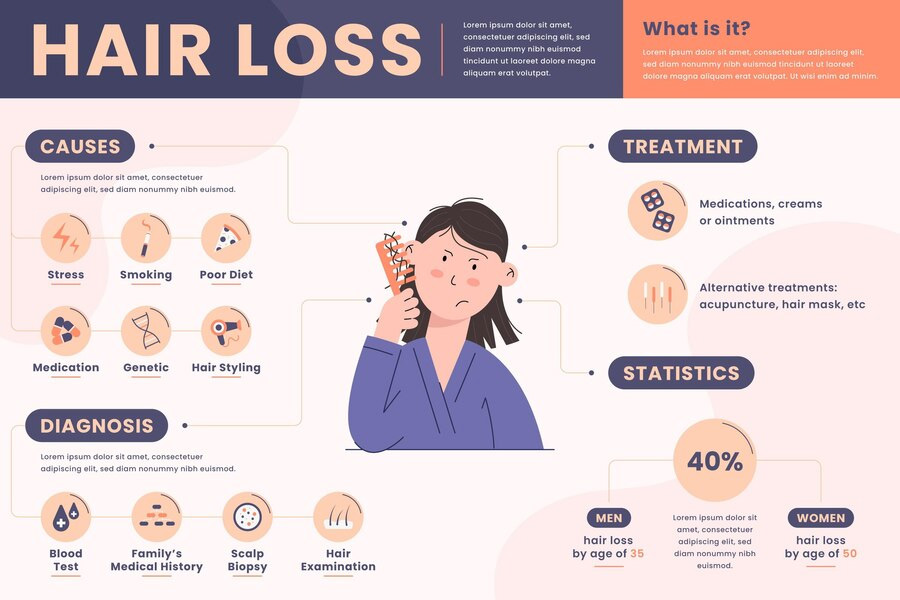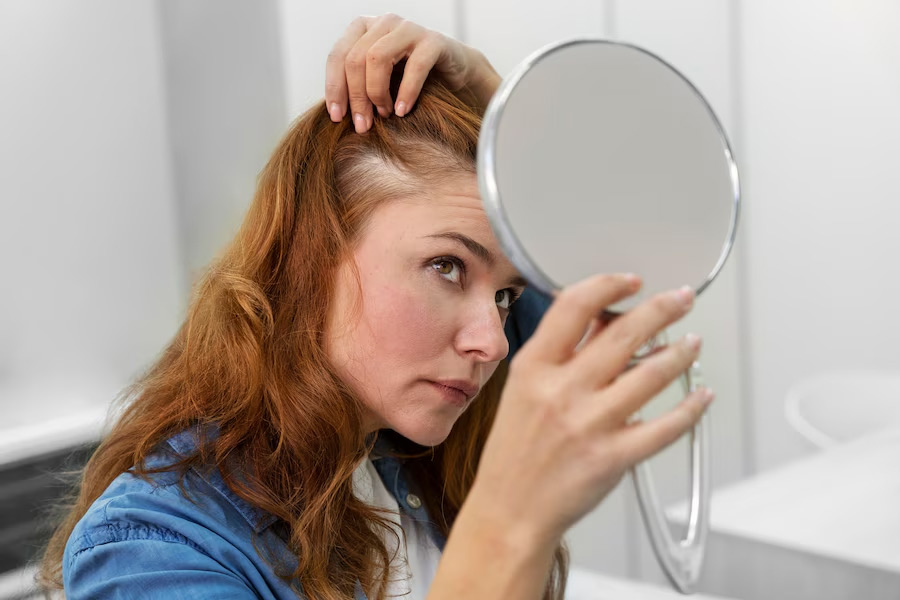
Stress affects our body in different ways. From increasing the risk of heart diseases to disrupting the immune system, it contributes to various health issues. Stress also has a deep connection to dermatological problems, like acne. However, it is also linked to alopecia, a condition commonly referred to as hair loss or baldness.
Table of Content:-
To determine the link and find strategies to relieve both stress and alopecia, we spoke to leading experts in the field. Here’s what they had to say.
How Stress Contributes To Alopecia

According to Dr Geetika, Dermatologist and founder of Influennz Skin and Hair Clinic, alopecia can manifest in various forms, ranging from mild thinning to complete baldness. It can have a profound impact on one’s self-esteem and overall quality of life.
"Among the many factors contributing to alopecia, stress plays a significant role in its development and exacerbation," she said, adding that stress-induced hair loss, also known as telogen effluvium, occurs when a significant number of hair follicles prematurely enter the resting (telogen) phase of the hair growth cycle.
Also Read: Are Leave-In Conditioners Worth The Hype?
Highlighting the primary culprit behind stress-induced alopecia, the doctor explained that cortisol, the body’s main stress hormone, is released in response to stress and signals the body to conserve energy for vital functions. "This shift in priority means that non-essential functions, like hair growth, take a backseat as the body focusses on protecting critical organs such as the heart, lungs, liver, and brain," the doctor further explains.
As a result, hair follicles receive less nutrition, blood flow, and support, leading to weakened hair and increased shedding.
Speaking with the OnlyMyHealth team, Dr Smriti Naswa Singh, Consultant Dermatologist and Cosmetic Dermatologist, Fortis Hospital, Mulund, shared three of the most significant varieties of alopecia, which include androgenetic alopecia, known as the genetic or hereditary pattern of hair loss; alopecia areata, an autoimmune condition; and diffuse hair fall, where you don’t see balding but do notice thinning of your ponytail or a decrease in hair thickness.
Effective Stress-Management Techniques To Control Hair Fall

When it comes to managing your stress, there is no one-size-fits-all approach. However, several techniques can help mitigate stress and its effects on hair health. These include:
- Yoga and meditation
- Mindfulness, or living in awareness
- Journaling
- Emotional freedom technique, or EFT or tapping
- Engaging in hobbies
- Social connect with friends, family, and loved ones
- Digital detox and social media detox
- Time in nature
The Role Of Diet And Nutrition

Dr Singh is of the opinion that good food leads to a good mood, and what you eat is crucial for everything in your body.
She said, “In India, one of the most common deficiencies is in trace elements or micronutrients due to a lack of diversity in the diet. The current urban diet is grain-rich, often filled with wheat or rice, and lacks a variety of fruits and vegetables, particularly seasonal, local, wild, and hyper-local varieties. This reduction in plant diversity leads to a decrease in micronutrients, which are like manure for good hair health.”
Also Read: Monsoon Woes: How To Prevent Hair Breakage During Extreme Humidity
Dr Geetika emphasised the importance of a balanced diet, which is made up of various components. These include:
- Protein-rich foods like chicken, eggs, tofu, and pulses into your diet can support hair growth.
- Soya chunks and extracts, which contain phytoestrogens that can be particularly beneficial for those with androgenetic alopecia.
- Saw palmetto extract, a natural DHT blocker, can help manage androgenetic alopecia by reducing the impact of DHT (dihydrotestosterone) on hair follicles.
- Selenium-rich foods like millets
- Green tea, which is rich in antioxidants
Treatment Options For Alopecia
If you’re dealing with any of the types of alopecia, there are treatment options that you can explore:
“For people with androgenetic alopecia, FDA-approved tablets and lotions are available, which can be used as prescribed by a trichologist. Additionally, hair transplants are FDA-approved approaches that can be considered under a doctor’s supervision. Moreover, supportive procedures like microneedling and platelet-rich plasma therapy can also be performed by a doctor,” advised Dr Singh.
She added that alopecia areata, which is an autoimmune condition, can be treated with tablets, creams, and injections, whereas diffuse hair fall requires nutrient supplements and the application of hair growth serums.
Also watch this video
How we keep this article up to date:
We work with experts and keep a close eye on the latest in health and wellness. Whenever there is a new research or helpful information, we update our articles with accurate and useful advice.
Current Version